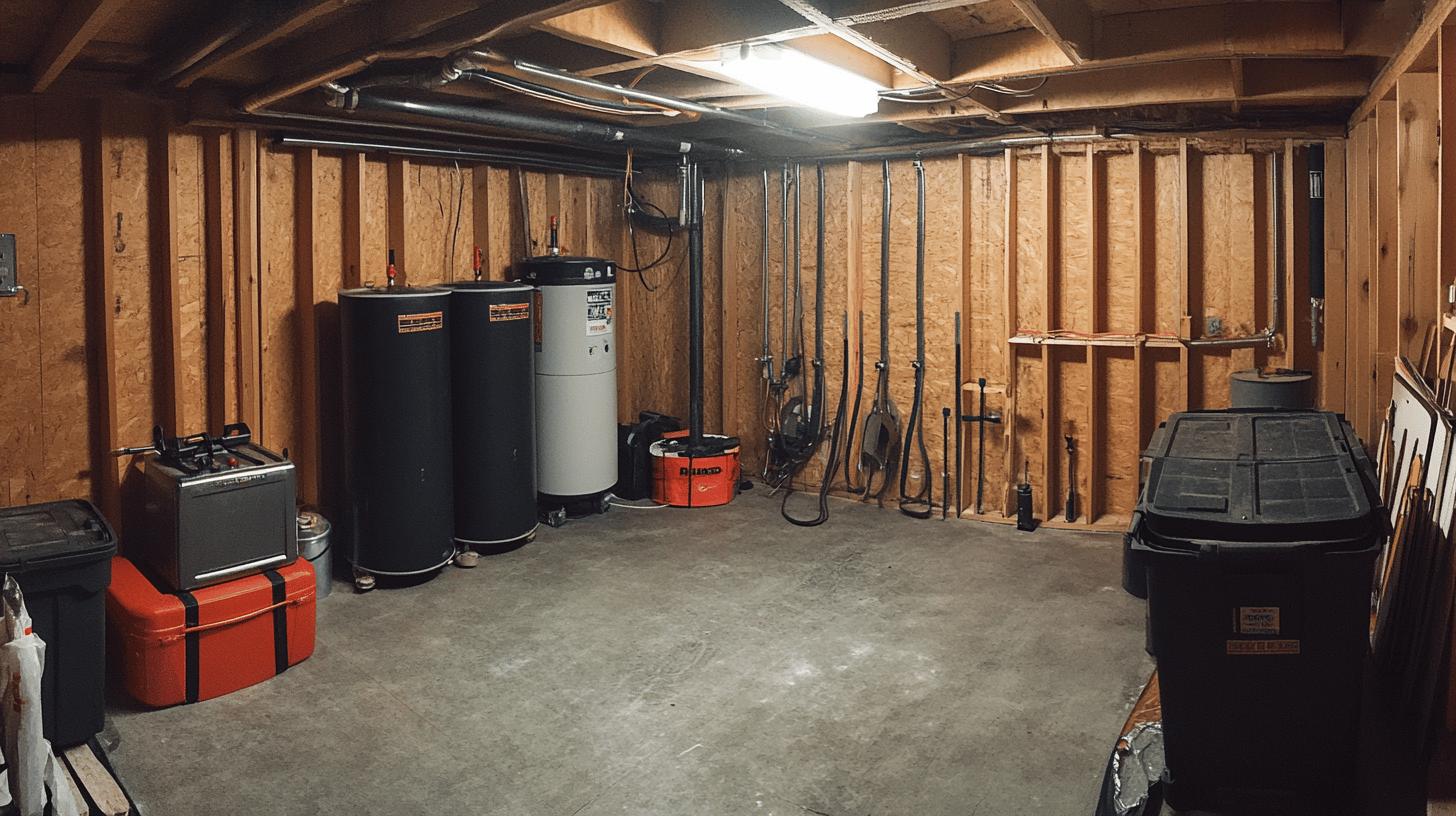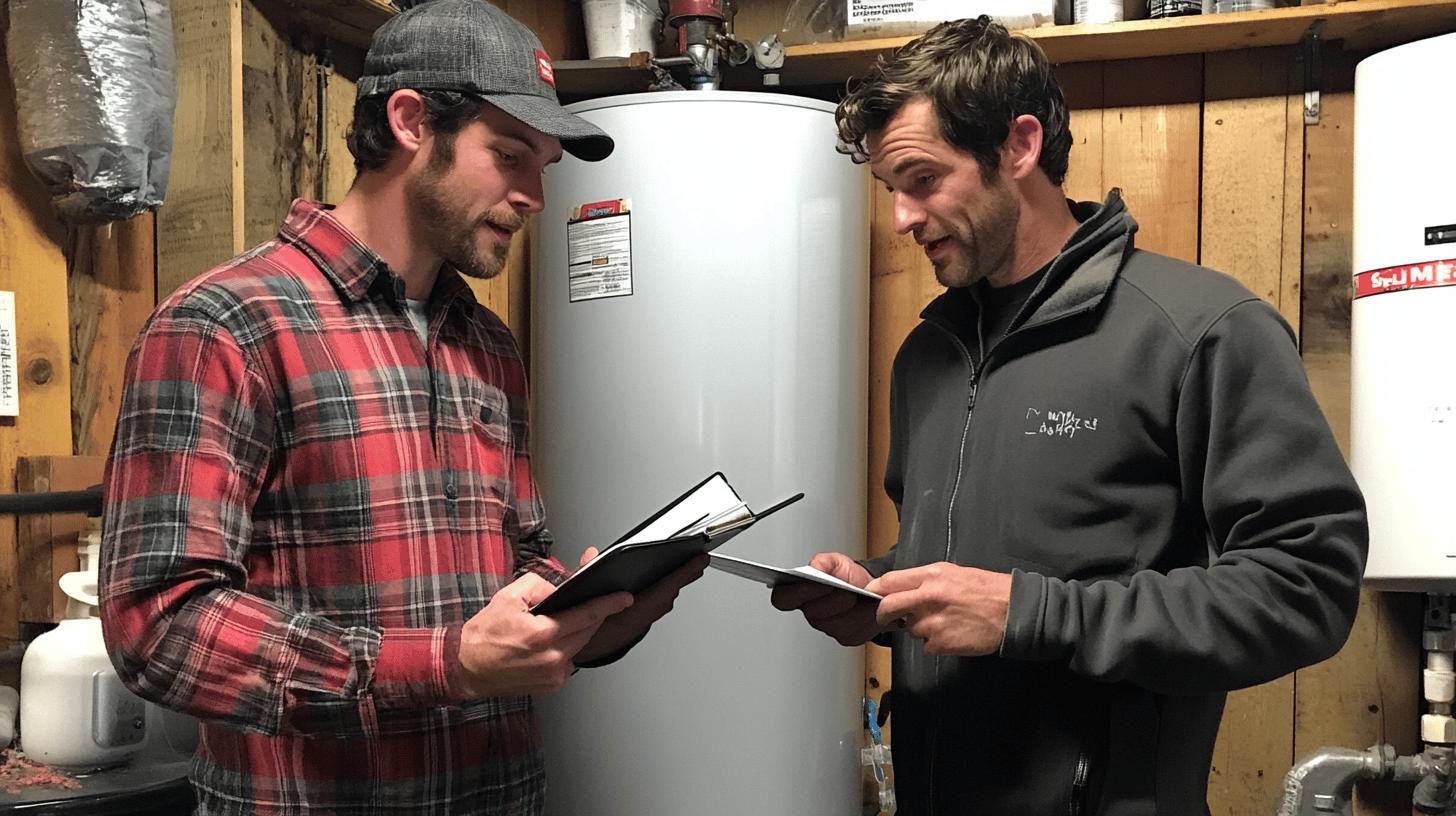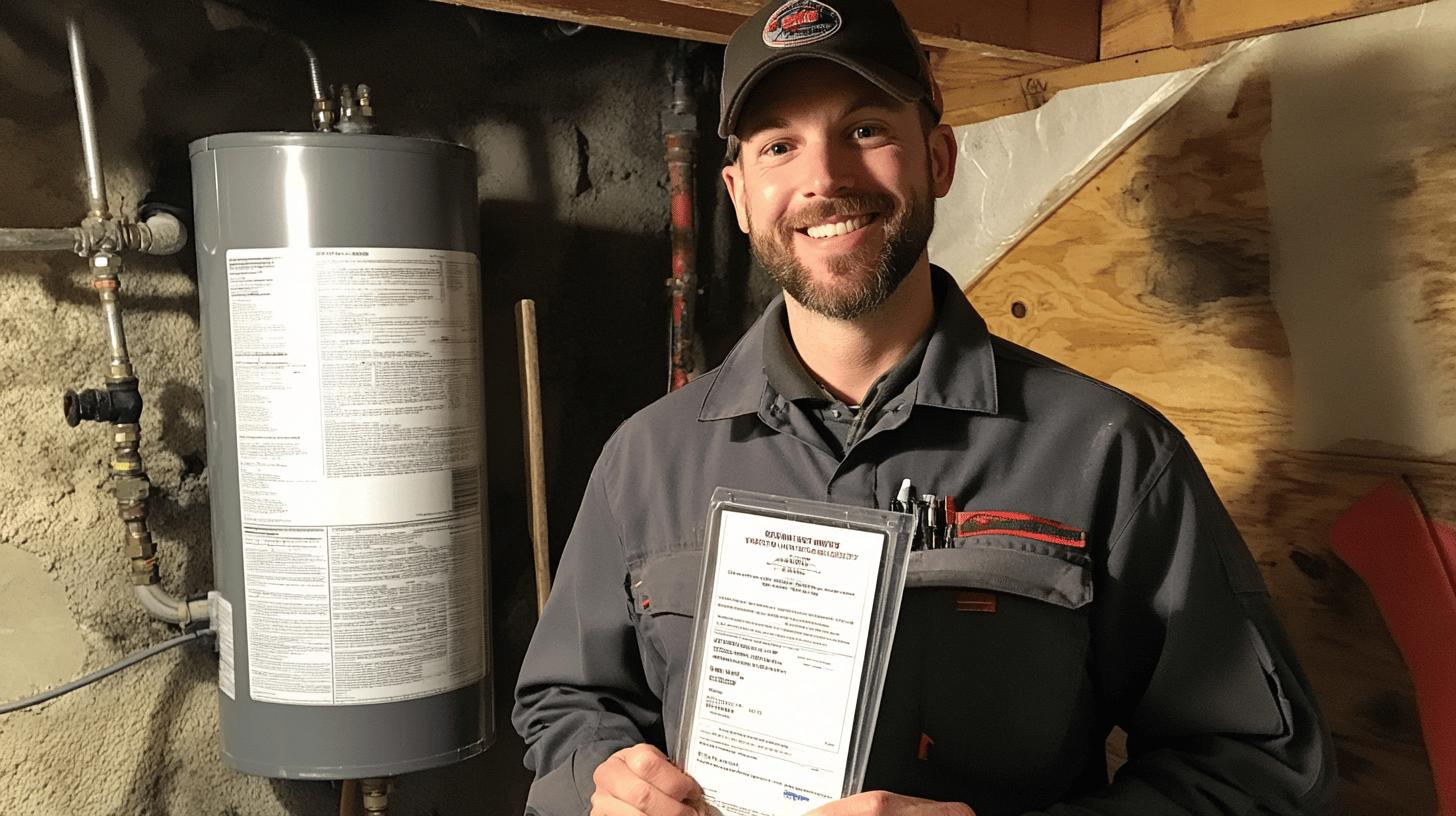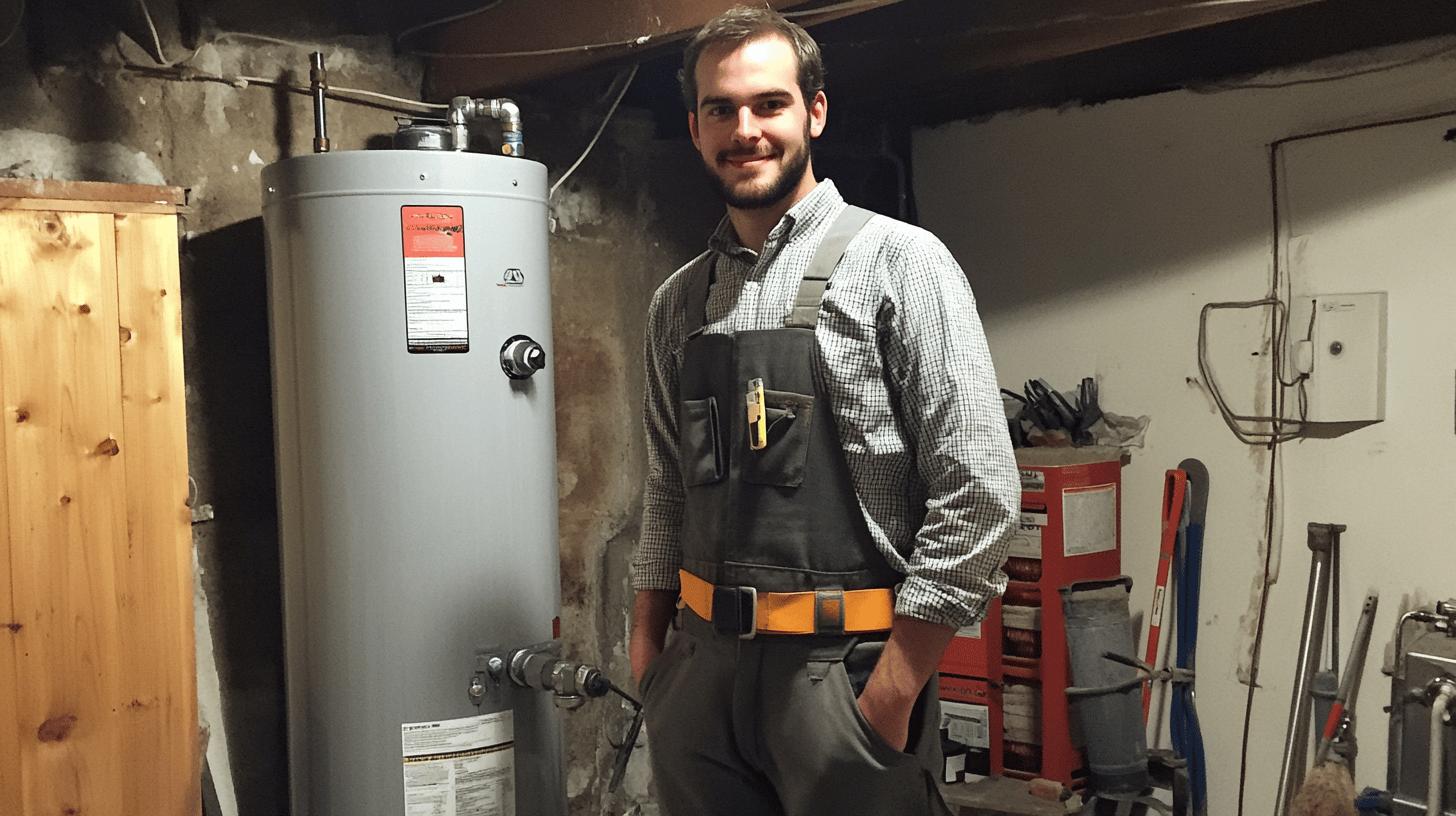TL;DR:
- A permit is generally required for water heater installation to comply with local building codes.
- Permits ensure safe installation and validate adherence to regulations.
- Both gas and electric water heaters typically require permits.
- Installing without a permit can lead to fines, voided warranties, and safety hazards.
- Key installation requirements include venting, seismic strapping, and dedicated circuits.
- The permitting process involves application submission, inspections, and fees.
- Permit fees range from $50 to several hundred dollars, depending on location and complexity.
- Hiring a professional plumber simplifies permit handling and ensures compliance, saving time and reducing risks.
Wondering if you really need a permit to replace your water heater? You’re not alone. Many people think it’s just a pointless hassle, but skipping this step could lead to fines, voided warranties, and even safety risks. In this article, we’ll clear up whether a permit is required and why it’s more important than you might think. Stick around to get the facts and make sure your installation is safe and compliant.
Do I Need a Permit to Install a Water Heater in My Home?
Yes, you usually need a permit to install a water heater. Most places require permits to ensure the installation meets local building codes and safety standards. This helps confirm everything is done correctly and safely. Both gas and electric water heaters typically need permits. Gas units involve handling gas lines, which can be dangerous if not done properly, and electric units involve electrical work that must meet safety rules. Getting a permit ensures everything gets inspected and approved, keeping your home safe.
- Fines for non-compliance
- Voided warranties on the water heater
- Increased safety hazards
- Issues with homeowners’ insurance
- Complications when selling your home
Following local regulations is important for a safe and legal water heater installation. Professional plumbers are essential in this process because they know the permitting rules and understand local codes. Hiring a pro ensures the job is done right, reducing the chance of future issues and keeping your home safe and compliant.
Understanding Local Regulations and Building Codes

Local building codes play a big role in whether you need a permit for a water heater installation. These codes vary by area and are in place to ensure safety and quality. Skipping a permit can result in fines or safety risks. Important parts of the installation, like venting for gas heaters, seismic strapping in earthquake zones, and electrical work for electric heaters, need special attention. These aspects often require extra permits to make sure everything is safe and up to code.
| Requirement | Description |
|---|---|
| Venting | Ensures harmful gases are expelled from the home. |
| Seismic Strapping | Secures the water heater to prevent tipping during earthquakes. |
| Electrical Modifications | Guarantees electrical work meets safety standards. |
| Gas Line Safety | Ensures gas connections are secure to prevent leaks. |
| Dedicated Circuits | Provides a separate electrical circuit to handle the water heater’s load. |
Professional plumbers know local building codes inside and out, making sure your water heater installation follows all regulations. They handle the permit process smoothly and ensure everything meets code. This expertise avoids inspection issues and guarantees a safe, compliant installation. Hiring a pro saves you time and gives you peace of mind, knowing your water heater is installed right.
The Permitting Process for Water Heater Installation
The permit process for installing a water heater usually starts with submitting an application to your local building department. You’ll need to provide installation plans and contractor details to confirm everything meets local codes. Inspections happen before and after installation to ensure safety and compliance. Pre-installation inspections check the site and plans, while post-installation inspections make sure the job is done correctly. These steps help avoid hazards and ensure a safe installation.
- Application submission
- Documentation
- Fees
- Pre-installation inspection
- Post-installation inspection
Professional plumbers make the permitting process easier by handling all the paperwork and submitting the application for you. They also coordinate inspections, making sure everything runs smoothly. Hiring a professional saves you time, eliminates the hassle, and ensures your water heater installation is safe and up to code.
Costs Associated with Water Heater Permits

Permit fees for water heater installation can vary depending on where you live and the complexity of the job, typically ranging from $50 to a few hundred dollars. Factors like local building codes, the difficulty of the installation, and whether additional permits are needed for electrical or plumbing work can affect the cost. Some areas may charge more due to stricter safety standards or extra inspection requirements.
- Permit fee range
- Inspection fees
- Modification costs
- Inclusion in professional service fees
Professional plumbers typically bundle permit-related fees into their service charges, simplifying the process for homeowners. They take care of the paperwork, schedule inspections, and make sure all work complies with local codes. This all-in-one service reduces the hassle and ensures the installation is safe and up to standard. Hiring a pro can also help you avoid unexpected costs and complications.
Risks of Installing a Water Heater Without a Permit
Installing a water heater without a permit can lead to hefty fines and leave you financially exposed. Your homeowners’ insurance may not cover damages caused by unpermitted work, putting you at risk if something goes wrong. Plus, selling your home could be tricky—buyers might be turned off by unpermitted installations, or you could be forced to pay for retroactive permits and upgrades. Following permit requirements now can save you a lot of trouble down the road.
- Explosions
- Gas leaks
- Electrical hazards
- Carbon monoxide poisoning
- Fire hazards
Getting your water heater installed by a professional is essential to avoid legal and safety risks. Licensed plumbers are familiar with local codes and ensure your installation is both safe and compliant. They manage the permitting process, minimizing mistakes and making sure all safety standards are followed. By hiring a pro, you protect your home and family from the dangers associated with unpermitted installations.
How Professional Plumbers Can Help with Permits

Professional plumbers are skilled at navigating the permitting process smoothly. They know local building codes and safety standards, ensuring your water heater installation meets all regulations. By taking care of the paperwork and coordinating inspections, they save you time and minimize potential issues. Their expertise guarantees that your installation is safe and compliant, giving you peace of mind.
- Efficiency
- Code compliance
- Time-saving
- Inclusive costs
Hiring a professional plumber helps avoid inspection problems and ensures a smooth installation. Their knowledge of local regulations allows them to quickly tackle any concerns. Many professional services include permit fees and inspections in their pricing, making things easier for homeowners. This all-in-one approach reduces complications and ensures your water heater installation is done right and hassle-free.
Final Words
Getting a permit for your water heater installation is crucial for safety and meeting local codes. Both gas and electric water heaters usually need permits to ensure they’re installed correctly. Skipping this step can lead to fines, voided warranties, and serious safety hazards.
Understanding your local regulations and the permitting process helps ensure your installation meets strict standards and avoids potential problems. Professional plumbers can simplify this process, ensuring everything is compliant and safe.
So, if you’re wondering, “Do I need a permit to install a water heater in my home?” the answer is typically yes. Prioritize safety and quality by following local regulations and hiring experienced professionals.
FAQ
What happens if you install a water heater without a permit near New Jersey?
If you install a water heater without a permit near New Jersey, you risk fines, safety hazards, and nullifying your insurance coverage.
How to get a water heater permit?
To get a water heater permit, submit an application to your local building department along with necessary documents like installation plans and contractor credentials.
Do you need a permit to replace a water heater in Washington State?
Yes, you need a permit to replace a water heater in Washington State to ensure compliance with local building and safety codes.
Do you need a permit to replace an electric water heater?
Yes, replacing an electric water heater generally requires a permit to comply with safety and building standards.
Do you need a permit to replace a water heater in Colorado?
Yes, in Colorado, replacing a water heater typically requires a permit to meet local regulations and safety codes.
Do you need a permit to replace a water heater in Texas?
Yes, replacing a water heater in Texas usually requires a permit to ensure it meets local building codes and safety regulations.
Do you need a permit to replace a water heater in Florida?
Yes, in Florida, replacing a water heater requires a permit to comply with local building and safety regulations.
Do you need a permit to replace a water heater in California?
Yes, replacing a water heater in California requires a permit to ensure compliance with state and local building codes.
Is it OK to install your own water heater?
While you can install your own water heater, it’s crucial to obtain the necessary permits to avoid fines, safety hazards, and insurance issues.
Can I replace my own water heater in California?
You can replace your own water heater in California, but you must obtain the proper permits to comply with local regulations and safety standards.
What happens if you install a water heater without a permit near New York, NY?
Installing a water heater without a permit near New York, NY can result in fines, voided warranties, and potential safety hazards.
Do you have to be licensed to install a water heater in Texas?
In Texas, you generally need to be a licensed plumber to install a water heater to ensure compliance with local codes and safety standards.

